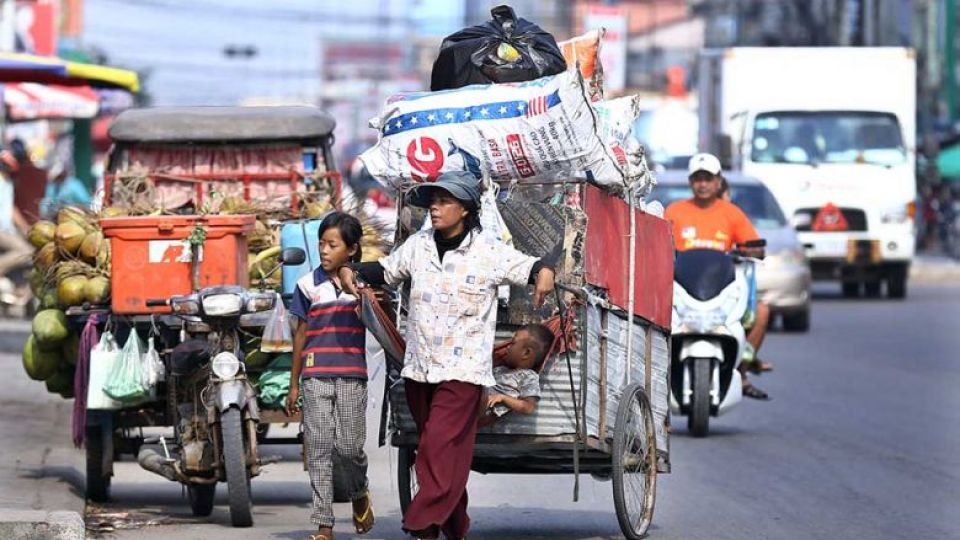April 22, 2022
PHNOM PENH – The Cambodian poverty rate has increased by four per cent in six years to 17 per cent in the 2019-2020 period, due in large part to the global Covid-19 crisis, a Ministry of Planning official has revealed.
Ministry secretary of state Tuon Thavoreak shared the findings at the launch of the National Population Policy 2016-2030’s special focus on people and education at Siem Reap Provincial Hall on April 19.
The Siem Reap provincial Department of Information quoted Thavoreak as saying that Cambodia’s poverty rate had dropped significantly – from 47 per cent in 2007 to 22 per cent in 2009 – and had continued to fall to 13 per cent in 2014, pushing Cambodia to become an average income country in 2015.
“However, a socio-economic investigation of data from 2019-2020 [reveals that] the poverty rate has increased to 17.8 per cent, which is largely due to the increase in poverty as a result of the global epidemic of Covid-19,” Thavoreak said.
The government has said that it has been promoting the implementation of the policy in several ways, including spreading awareness to stakeholders about the government’s vision, strategy, national policy plan and sustainable development goals.
Thavoreak was quoted as saying that the development of human capital is also an important factor and the key to expanding the economy and development in “all areas”, and that focus on investing in education, health and welfare – with a focus on youth and women – is what can help Cambodia increase its global competitiveness.
He said education is important for individuals and a resource for national development, an inalienable right, and enables the development of human capacity in ways that would eliminate economic, social, cultural, family, individual, legal and political inequalities, and contribute to poverty reduction.
He also articulated his belief that the education sector was a priority of the government, which is planning to develop human resources in response to changes in the agriculture, industrial and service sectors.
Yong Kim Eng, president of the NGO People’s Centre for Development and Peace (PDP), said the “indisputable issue” leading to the increase in Cambodia’s poverty rate was Covid-19, a major challenge that saw restrictions applied by the international community – especially Europe – on the Kingdom’s textile and agriculture sectors. He said it was a “contributing factor” for the increase in poverty.
“At the same time, we see that the inflation rate of commodities is so high that it makes it easier for people living near the poverty line to fall into poverty,” he said.


